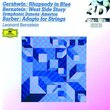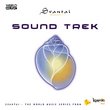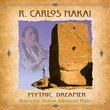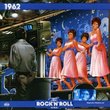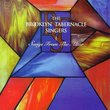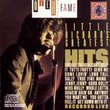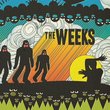| All Artists: Shostakovich, Rostropovich, Lso Title: Symphony 11: The Year 1905 Members Wishing: 0 Total Copies: 0 Label: Lso Live UK Release Date: 9/10/2002 Album Type: Import Genre: Classical Style: Symphonies Number of Discs: 1 SwapaCD Credits: 1 UPC: 822231103028 |
Search - Shostakovich, Rostropovich, Lso :: Symphony 11: The Year 1905
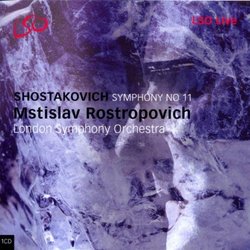 | Shostakovich, Rostropovich, Lso Symphony 11: The Year 1905 Genre: Classical When Mstislav Rostropovich conducts Shostakovich's music, the results are never less than sensational. The two were close friends and Rostropovich has a unique understanding of the composer's works. The Eleventh Symphony t... more » |
Larger Image |
CD DetailsSynopsis
Album Description When Mstislav Rostropovich conducts Shostakovich's music, the results are never less than sensational. The two were close friends and Rostropovich has a unique understanding of the composer's works. The Eleventh Symphony takes a cinematic approach to recounting events surrounding the 1905 Russian revolution. But the intensity of Rostropovich's interpretation and his personal insight point towards Shostakovich's real intentions. Similar CDs
Similarly Requested CDs
|
CD ReviewsIn short order, my favorite performance of this work. Bob Zeidler | Charlton, MA United States | 09/19/2002 (5 out of 5 stars) "I first experienced this work many years ago, when Capitol Records (now part of EMI) released an LP set by Leopold Stokowski and the Houston Symphony Orchestra (still a favorite of mine, and presently available in well-mastered CD form from EMI). In subsequent years, I added performances by Bernard Haitink, Rudolf Barshai, and Rostropovich himself, when he had been the conductor of the National Symphony Orchestra. But it took only one hearing of this new "LSO Live" performance, with Rostropovich conducting the London Symphony Orchestra, for it to go to the top of this rather small pile of Shostakovich 11th Symphony recordings. Shostakovich's 11th Symphony is a rather long, and very brooding, work. Ostensibly written to commemorate the 1905 Russian Revolution, its date of writing also suggests that it might contain one of his frequent "hidden messages," this one as a personal response to the Hungarian uprising and subsequent Soviet invasion of 1956. But perhaps it's best to ignore this highly-specific subtext, and simply accept the work as a more universal "commemoration to the victims of oppression everywhere." Some Shostakovich symphonies (certainly the 1st, 5th, 8th and 10th, and perhaps the 6th and 9th) are heard in the concert hall much more frequently than this work, or for that matter, his other "war" symphony, the 7th ("Leningrad") Symphony. It follows - largely, anyway - that this work is not nearly as frequently recorded. But, unless you are one who needs multiple versions of everything, this Rostropovich/LSO recording is likely to be the only one you'll ever need. Recorded live, it is, in a word, stunning. In fact, given its dynamic range - with much of the opening "Palace Square" Adagio performed barely above the level of a whisper - one has a hard time believing that it is in fact a live recording. Applause at the end (and surely it must have been overwhelming) has been edited out, and there is not even the smallest hint of audience noise; not a cough, not a candy-wrapper crinkling, absolutely nothing! I'm in awe just of the audience! Rostropovich, one of Shostakovich's closest friends, understands this work (as well as the Russian themes that Shostakovich "encoded" into it) as well as anyone alive, if not better. Now, at age 75 (and several years after his National Symphony Orchestra recording), he seems to be "just hitting his stride." The tension throughout is palpable. In the opening Adagio, and again in the 3rd movement Adagio, Rostropovich achieves the near-impossible in terms of creation of brooding intensity; the opening Adagio is nearly 4 minutes longer than those on my other versions without the slightest loss of tension. And at those points in the work where the tension does break and the full orchestral forces are "left off the leash," the LSO responds like the virtuoso orchestra it is. Truly a performance not soon forgotten. And at the very nice "LSO Live" mid-price common to this series. Bob Zeidler" The Soundtrack to the end of the world. B. Lonano | Staten Island, NY United States | 08/13/2004 (5 out of 5 stars) "I have never heard a more intense, powerful and mindblowing piece of classical music than Shostakovich's Second momement to his 11th symphony. I recommend the cd just for the second movement alone. He captures the terror of the 1905 revolution or any horrific event with this music. This piece is organized chaos, and thats a great thing. If the end of the world comes, (and I hope it doenst for a while) I'd very much like this piece playing when it happens. At least, I'll listen to a great piece of music when I'm killed by giant monsters." A Refreshing Look at Shostakovich D. A Wend | Buffalo Grove, IL USA | 10/02/2002 (5 out of 5 stars) "This recording of Dimitri Shostakovich's 11th Symphony is a bit unusual: Mstislav Rostropovich adopted a much slower tempo in all of the movements. In fact, his recording is 16 minutes longer than the premiere recording by Mravinsky (Russian Revelation). The result is that the descriptive music, almost cinematic, is given a broader sweep. The brooding quality of the first movement is intensified and the violent confrontation of Bloody Sunday in the second movement seems all the more violent. (Gennady Rozhdestvensky has recorded the 11th with a second movement a minute longer than this recording). Rostropovich was quoted as applying the music of this symphony to the terrorist attacks of September 11, so this performance is more of an event. The slower tempos do make this symphony seem like one of the war symphonies (the 8th in particular) and more inspired than the faster tempos, say of Kondrashin (who recorded the 11th at a time of 54 minutes).Although this recording with the London Symphony was a live performance there is no background noise and no applause at the end of the symphony, only the reverberation of the bells as the sound fades. This is a must have recording for Shostakovich lovers."
|


